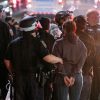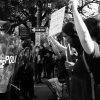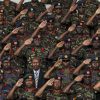 Guyana’s Reparations Committee to Present Proposals to CARICOM
Guyana’s Reparations Committee to Present Proposals to CARICOM
By Zena Henry
The local Reparations Committee, which is responsible for the compilation of data – historic and current – for presentation to Europe over claims of native genocide and slavery, is expected to complete its draft proposal today.
The Reparations Committee is expected to complete the draft proposal today.
The Reparations Committee is expected to complete the draft proposal today.
The committee will then be seeking the input of organizations and civil society. Chairman of the committee Eric Phillips told Kaieteur News yesterday that the organization had designated today for all major work to be completed and the draft prepared. He explained that recently the committee, along with others from the various Caribbean regions seeking compensation, had a Skype meeting with Caribbean Community (CARICOM) to discuss their moves.
He said that CARICOM is expected to meet from July 1, to the fourth, and they will decide on the way forward.
Among the proposals being advanced to the local committee, participating organization, The Afrikan Movement, has submitted and called for a Reparations Act. The call goes to both CARICOM and the local government for what was described as a meaningful guide towards matters of reparation.
The body said it has a vested interested in the outcome of the work of the Guyana National Reparations Committee and it has pledged its support for the point 10 “Debt Relief” as per Guyana Reparations Committee, subject to the condition that in the Guyanese context, Debt Relief be accompanied by a programme of “Affirmative Action for Guyanese of Afrikan ancestry”.
They called for the provisions for reparative action to be legislated in a Reparations Act, which “takes into consideration the history of the undermining of Afrikan achievements in the Linden community and the wider context of Guyanese history”.
In the undermining of African achievement, the Movement believes that a constitutional provision needs to be engaged to ensure the perpetuity of the benefits of African endeavour in Guyana and that it recommends and lobbies for the establishment of a Reparations Fund to receive and manage funds received as Reparations and that such monies shall not go to the national treasury.
It was requested further that all historical records relevant to African arrival, existence and experiences be obtained and educational and cultural programmes be developed. The body called for an investigation to be launched into the history of Guyana’s Black Caribs.
“The Afrikans of Guyana should be recognized and compensated for laying the infrastructure on which the nation’s capital and economy is based.
“It is requested that attention be paid to lands seized from Afrikan foreparents in the late 19th century; all of the estates and settlements seized by the state in the 19th century; all properties which would by common customs and usages accrue to a people but which we have been unduly been denied access to as a result of state discrimination.
“In keeping with the precedents established, especially in the post apprenticeship period and by the Independence movement to guarantee ethnic groups state patronage, suitable bodies of land and water and the rights to all the minerals and other natural resources and advantages occurring from same.”
An enquiry was requested into the policy and practices of police training in Guyana with the aim of changing the perception and orientation of the ranks, which assumes current policing methods which display a discriminatory exercise of execution.
And “considering the extent of the damage done to the Afrikan identity and competitiveness and the rapidly changing economic dynamic, and the Afrikans need to hasten their economic and technological competitiveness, the establishment among others, of our own economic, cultural, spiritual, educational, medical research and development institutions.
The movement asked that several Articles of the Programme of Action and relevant Articles of the Durban Declaration, be tabled in Parliament and form a part of the Reparations Act.














